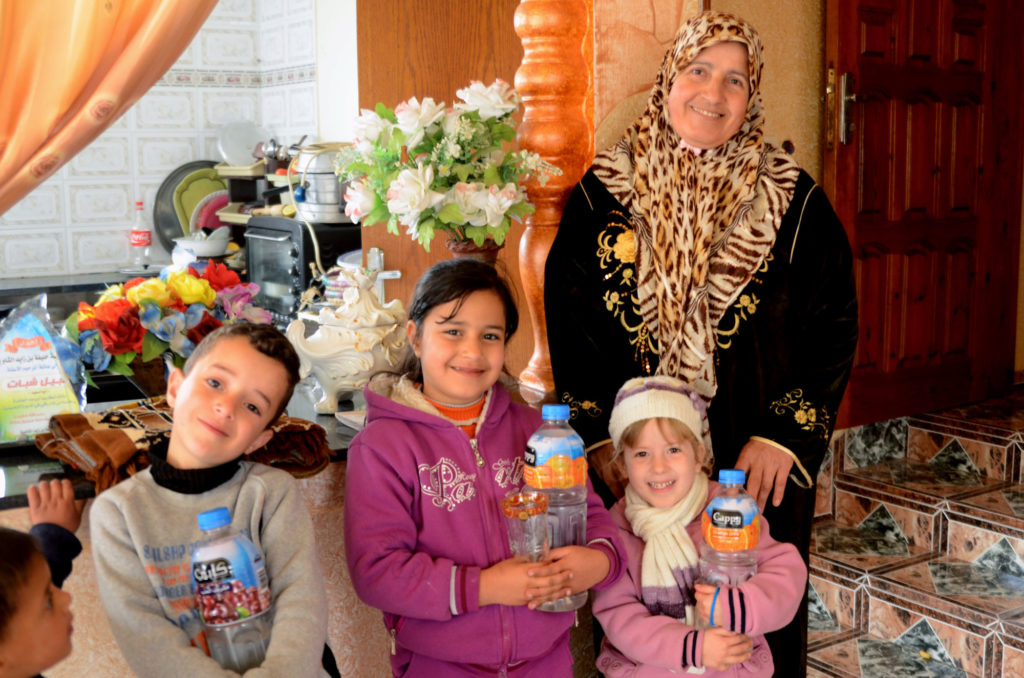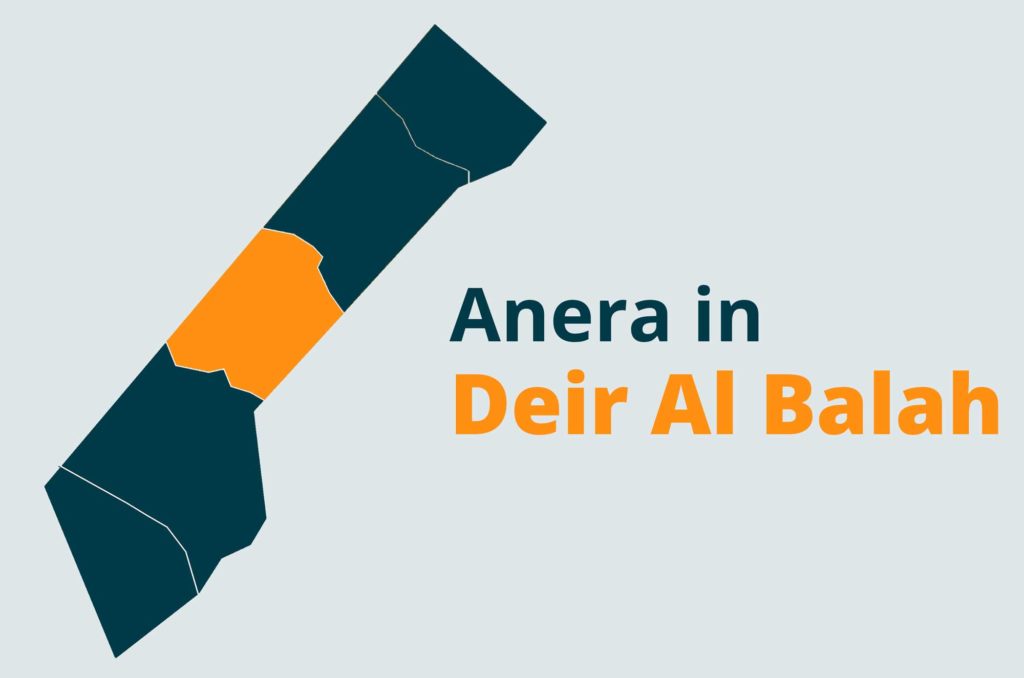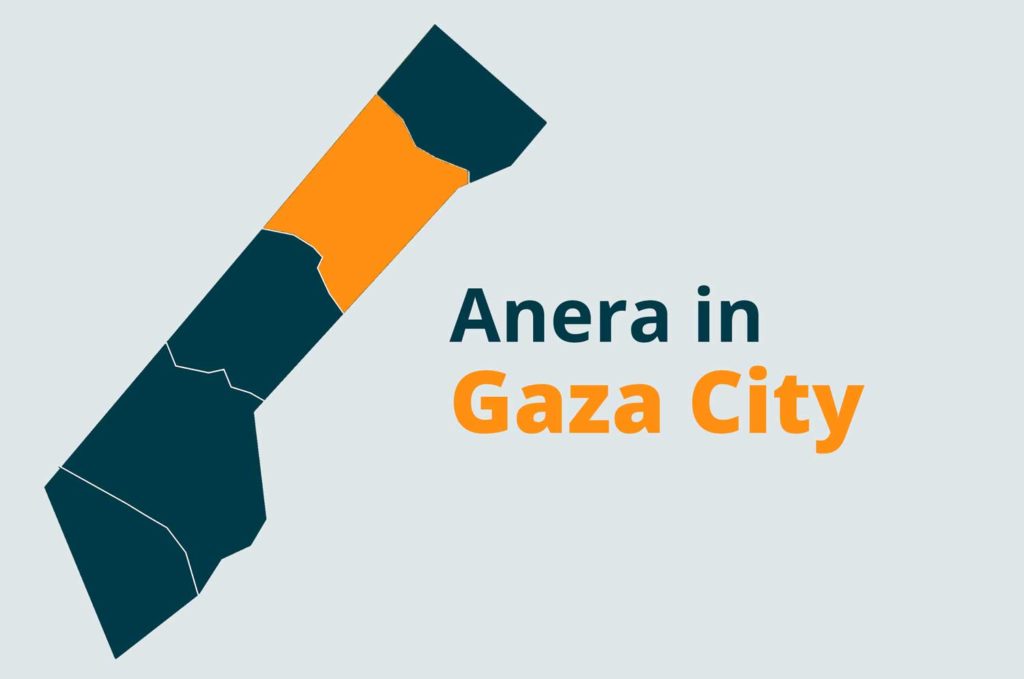Feb, 2015
Families in Beit Hanoun, a neighborhood heavily bombed in 2014, gets water networks restored. Even before the war, access to clean water was limited.
Mohanad Mousa couldn’t wait to tell his family what he had learned in his science class about water. The eight-year-old proudly repeated the facts: rain is a source of water and water brings goodness and blessings to the earth. But that blessing is elusive for Mohanad and his family who have been without running water at home in Gaza for many years.
Mohanad’s mother Fatima explains, “We live far away from any water connections. Our community has been left behind and forgotten.” She says the families have filed complaints, but nothing has been done.
The community in Beit Hanoun where Mohanad and his family live suffers sharp decreases in the supply of water at home, especially during the summer when the need for water is high. The family purchases water in town when they can, but this greatly strains the family budget.
Fatima’s husband collects plastic for recycling, but that doesn’t bring much revenue. “A big chunk of our limited income goes to purchasing water,” Fatima says. “We pay 15 shekels ($3.50) to fill our 1000-liter storage tank,” she explains. Fatima and her family use that water for domestic use, like showering and cleaning, and for drinking. A full tank of water usually lasts for about three days. “I try to be as prudent as possible with the water, but I have children and they need it,” says Fatima.
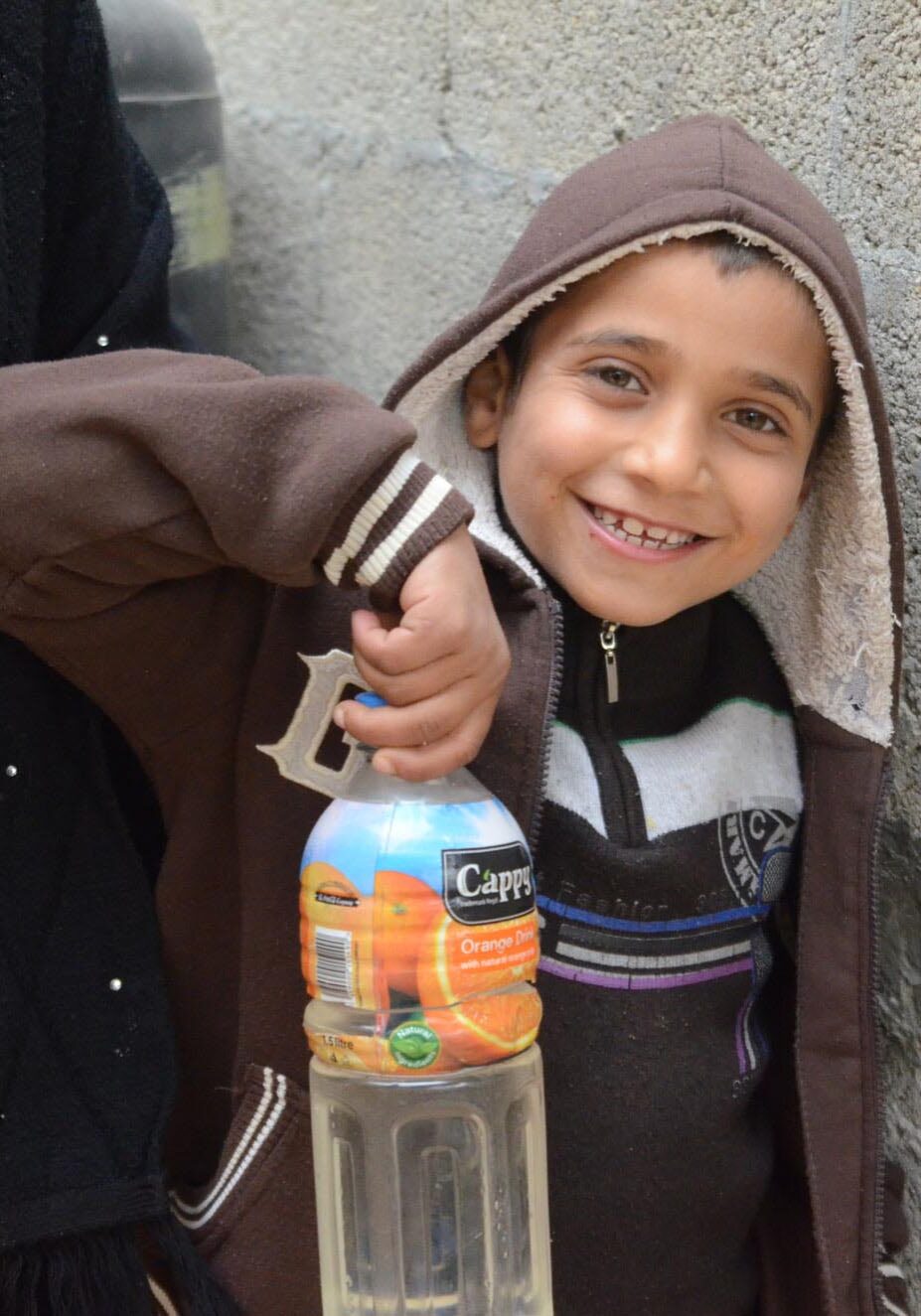



We live far away from any water connections. Our community has been left behind and forgotten.
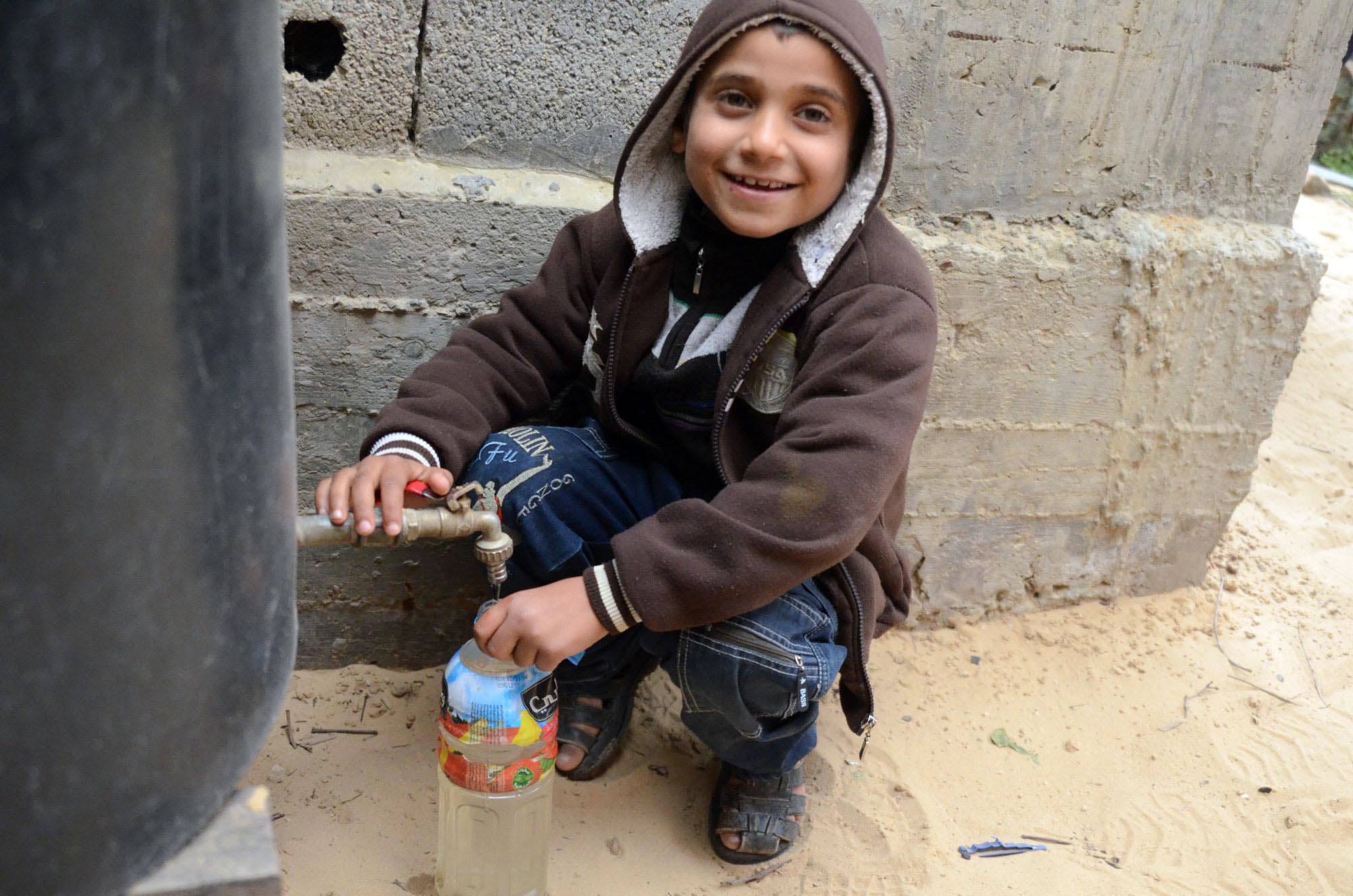

Living in an area without a reliable source of water has been very difficult for Fatima. She remembers the days when she and her husband stayed up until 3 a.m. hoping to get precious water when it sporadically flowed from the tap. “We used to have water for two hours a day, but mostly late in the night. If we were lucky, we would wake up in time to fill our water tank,” she recalls.
Fatima and her family were thrilled when they heard the news that Anera would be connecting their community to a steady flow of water.
The water project, funded by Islamic Relief USA, aims to restore water supply lines to homes and communities that were damaged in the recent conflict. In total, 12,000 families—in Beit Hanoun, Shejaiya, Bureij, Nusierat, Deir Al Balah, Bani Suhiela and Shokat As Sufi—will be connected to water.
Now when Fatima looks up at her full water tank, her eyes shine with delight and relief. It is one less worry for her family. “The water situation is so much better now,” she says. “It rarely cuts off. Our water tank is filled most of the time and we are saving money.”
“Water is life and blessings. No words can describe the excitement of having water in my house!” exclaims Sabah Shabat, a grandmother of five, as she washes her dishes.
But that wasn’t the case during the 2014 Gaza war, when the water trucks weren’t able to reach the neighborhood because of the intensive bombings. “My husband and sons took the empty tanks on donkey carts to the center of Beit Hanoun to fill them with water. Each time they left, I had constant worries until they returned. But we had no other options,” she says.
Sabah has lived in the same area for five years and feels the difference the new water network has made. “Water is essential to our lives,” she says, surrounded by her young grandchildren.
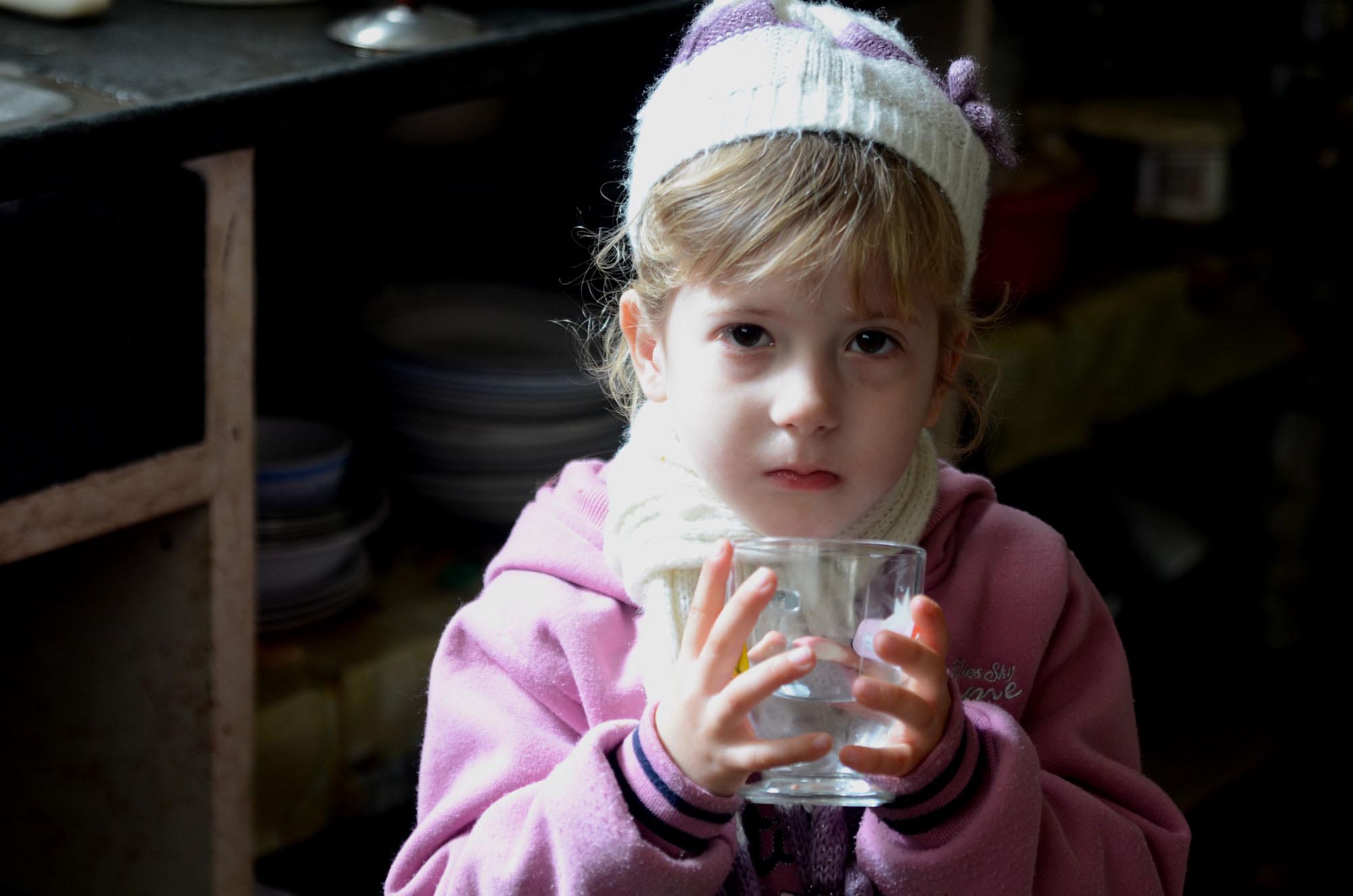



Water is life and blessings. No words can describe the excitement of having water in my house!
The delight and relief shared by Fatima and Sabah are reflected in other families in the neighborhood who say they are counting their blessings with the new water connections that make their life a bit easier in otherwise difficult conditions.
